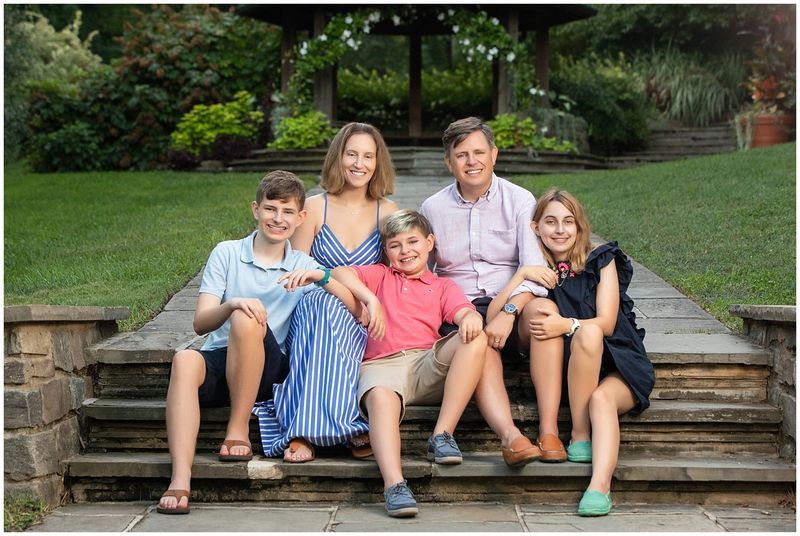18 Things Adult Children Wish Their Parents Would Stop Bringing Up
Family conversations can be a tightrope walk, especially when certain topics keep cropping up. Adult children often find themselves navigating subtle guilt trips and well-intentioned but misplaced advice.
This post dives into 18 recurring themes that many wish would take a backseat. With a touch of humor and honesty, let’s explore the dynamics of grown-up parent-child relationships.
1. “When are you going to settle down?”

“When are you going to settle down?” is a question that echoes through countless family gatherings. For many, it’s not just about marriage; it’s an inquiry into life choices and paths not taken. This question often carries a weight of expectation and a hint of impatience.
Parents may not realize how this seemingly innocent query can feel like pressure to follow a traditional script. Adult children value their independence and diverse life paths, whether they’re single, partnered, or somewhere in between.
Instead of traditional milestones, many are focused on personal growth, career goals, or simply enjoying the journey. The hope is for understanding and respect for the choices that make each individual’s life authentic and fulfilling.
2. “You used to be so outgoing…”

“You used to be so outgoing…” is often said with a hint of nostalgia and concern. It implies a change that seems undesirable to parents, but for adult children, it’s a sign of growth or change in interests.
The truth is, personalities evolve. What was once energetic and extroverted may now be introspective and thoughtful. Parents might see this as a loss, but it’s often a natural transformation.
For those who were once the life of the party, today’s peace and quiet might be where they find joy. Recognizing these changes as positive rather than negative can foster better understanding and connection between generations.
3. “Back in my day…”

“Back in my day…” is a classic conversation starter that can lead to a journey down memory lane, often with a moral or lesson attached. While these stories can be rich with history, they sometimes come across as comparisons to today’s realities.
For adult children, these tales can feel like judgments on current life choices or perceived shortcomings. They value the wisdom but seek respect for the different circumstances of modern life.
The challenge lies in balancing reverence for the past with acceptance of the present. Sharing experiences without enforcing them as templates for today’s life can create a more open dialogue.
4. “You should really call more often”

“You should really call more often” can feel like a subtle guilt trip, especially in a time where communication has evolved beyond phone calls. For many adult children, life is a whirlwind of responsibilities, and finding time can be challenging.
While staying connected is important, the method and frequency should feel natural and mutual. Understanding that digital communication has diversified can help bridge gaps.
Sometimes, a quick text or a shared photo can mean as much as a long call. The focus should be on meaningful interactions rather than the frequency of communication, honoring each other’s lives and schedules.
5. “You still haven’t used that gift I got you”

“You still haven’t used that gift I got you” can turn a thoughtful gesture into an obligation. Gifts are meant to be enjoyed, not to become a source of guilt or pressure.
For adult children, life can be hectic, and finding the right moment or need for a gift might take time. It’s not always a reflection of appreciation but rather of timing or circumstance.
Parents might not realize that the act of giving was already appreciated, regardless of the gift’s usage. Encouraging a no-pressure approach to gifting can alleviate stress and keep the joy in the gesture itself.
6. “Why don’t you visit more?”

“Why don’t you visit more?” tugs at the heartstrings, revealing a longing for connection. For adult children, balancing life’s demands with personal time can be tricky.
Visiting might not always be possible due to distance, work, or commitments. It’s not a lack of desire but often a matter of circumstance. Understanding these limitations can ease tensions.
While visits are cherished, recognizing the value of other forms of connection, like video calls or messages, can be just as meaningful. The goal is to foster a loving relationship without perceived obligations.
7. “That’s not how we raised you”

“That’s not how we raised you” can sting, feeling like a critique rather than an observation. Parents may see it as a reflection of values and lessons, while adult children hear it as disapproval of their choices.
Life’s experiences shape people, sometimes leading them in different directions. It doesn’t mean the upbringing was forgotten but that personal growth has taken a new form.
Embracing these differences can lead to enriching family dynamics. Acknowledging the foundation while celebrating unique paths fosters respect and understanding across generations.
8. “So… grandkids?”

“So… grandkids?” may be a light-hearted inquiry for some, but it often carries expectations that weigh heavily on adult children. Parenthood decisions are deeply personal and influenced by various factors.
The topic, though well-meaning, can feel invasive. It assumes a desire or path that not everyone chooses or is ready for. Understanding this choice as nuanced and individual can ease pressure.
Focusing on supporting happiness and fulfillment in whatever form it takes is a more inclusive approach. Celebrating different definitions of family can strengthen bonds rather than strain them.
9. “What do you even do for a living again?”

“What do you even do for a living again?” speaks to the ever-evolving landscape of careers today. Many jobs defy traditional definitions, leaving parents puzzled about their children’s professions.
This question can feel dismissive of the effort and success behind a career. Adult children seek acknowledgment of their achievements, even if the path isn’t conventional.
Understanding that success comes in many forms and is not always tied to a title can open up more supportive conversations. Encouraging curiosity over judgment can bridge generational gaps in career perceptions.
10. “You’re too sensitive”

“You’re too sensitive” is often said in moments of misunderstanding. Sensitivity can be perceived as weakness, but for many adult children, it’s a strength that connects them to the world.
Emotional intelligence is valued in today’s society, and what was once seen as a flaw may now be a celebrated trait. Parents may not realize that their child’s sensitivity allows for empathy and depth.
Respecting feelings without labeling them can foster closer relationships. Acknowledging the beauty in emotional awareness creates a more supportive and understanding family environment.
11. “We didn’t need therapy when we were your age”

“We didn’t need therapy when we were your age” highlights generational differences in approaching mental health. Therapy was often stigmatized in the past, whereas today, it’s embraced as a tool for growth.
For adult children, seeking therapy is a proactive approach to well-being, not a sign of weakness. Parents may struggle to understand this shift, seeing it as unnecessary.
By recognizing therapy as a legitimate and beneficial option, families can create a more open dialogue about mental health. Encouraging self-care and mental wellness strengthens family bonds and individual resilience.
12. “You should buy a house already”

“You should buy a house already” often stems from well-meaning intentions but can feel like pressure to conform to traditional milestones. Real estate markets and personal priorities have evolved, making home ownership a complex decision.
For many adult children, flexibility and financial prudence outweigh the allure of owning property. Renting or alternative living arrangements might better suit their current lifestyle.
Understanding these choices as valid and thoughtful can ease tensions. Celebrating independent decision-making acknowledges maturity and wisdom in navigating today’s financial landscape.
13. “Don’t post that on social media”

“Don’t post that on social media” reflects the generational divide in digital engagement. Parents might not understand the nuances of online presence, viewing it as risky or unnecessary.
For adult children, social media is a tool for connection, expression, and even career advancement. Privacy is navigated with care, often more thoughtfully than assumed.
Encouraging dialogue about online boundaries can lead to mutual understanding. Recognizing the positive aspects of digital engagement can bridge gaps and foster respect for each other’s perspectives.
14. “You always liked [insert ex’s name]”
![“You always liked [insert ex's name]”](https://herway.net/wp-content/uploads/2025/05/Dont-post-that-on-social-media.jpg)
“You always liked [insert ex’s name]” can feel like a trip down memory lane that wasn’t planned. While nostalgia is fun, this comment often undermines current relationships or personal growth.
For adult children, past relationships are part of their history but not necessarily a part of their present. Bringing up an ex can be intrusive and dismissive of new chapters.
Focusing on supporting current happiness and respecting the past as just that—the past—can nurture healthier relationships and conversations. Emphasizing growth and change is key to positive family dynamics.
15. “We just want what’s best for you”

“We just want what’s best for you” is often said with love but can be perceived as manipulative. It implies a one-size-fits-all view of happiness that may not align with the individual’s desires.
Adult children appreciate concern but seek ownership of their life choices. They value support without strings attached or conditions that come with subtle expectations.
Encouraging open conversations about what ‘best’ truly means for each person can lead to more genuine support. Fostering independence and respect in decision-making strengthens family bonds and trust.
16. “You spend too much on [literally anything]”
![“You spend too much on [literally anything]”](https://herway.net/wp-content/uploads/2025/05/We-just-want-whats-best-for-you.jpg)
“You spend too much on [literally anything]” often feels like a critique of personal values and financial decisions. What parents see as extravagance, adult children view as personal choice.
Managing finances varies greatly between generations, with different priorities and lifestyles shaping spending habits. Criticism can feel invasive and dismissive of their autonomy.
Recognizing independence in financial decisions as part of personal growth can ease tensions. Encouraging conversations about budgeting and priorities fosters understanding and respects each other’s choices.
17. “Why can’t you just be more like your cousin?”

“Why can’t you just be more like your cousin?” is a comparison that stings, undermining individuality and unique paths. Each person’s journey is distinct, shaped by personal goals and dreams.
For adult children, such comparisons can diminish self-worth and impose unrealistic expectations. Parents may not realize the pressure this places on their children.
Celebrating individual achievements without comparison fosters a more supportive environment. Encouraging each person’s talents and recognizing diverse success stories strengthens family unity and morale.
18. “You’ll regret not listening to us one day”

“You’ll regret not listening to us one day” is a phrase that carries a heavy burden of expectation. It suggests a lack of trust in the individual’s decision-making abilities.
Adult children value guidance but also cherish the freedom to forge their own paths. Mistakes are part of learning and growth, not necessarily regret.
Encouraging autonomy and respecting decisions can lead to more empowering relationships. Trusting in the wisdom of personal experiences fosters mutual respect and understanding across generations.







